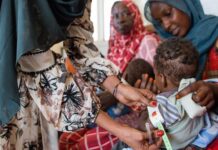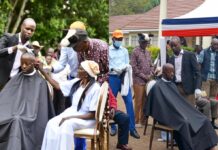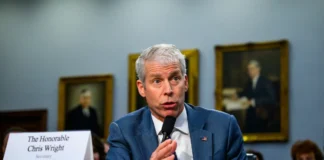The government has refuted claims that it has engaged public relations firms to enhance Kenya’s international image and attract foreign investment.
In a statement on Monday, January 13, Government Spokesperson Isaac Mwaura dismissed a recent article alleging that the state had hired APO Group and Zawya for PR purposes.
He clarified that there are no commercial agreements with these organizations.
“A recent article suggests that the government has hired APO Group and Zawya for PR. To clarify, there are no commercial ties with these organizations,” he stated.
Mwaura explained that APO Group has been voluntarily sharing news from the Presidency since March 2020 before William Ruto became president.
“APO has been sharing Presidency news pro bono since March 2020, prior to President Ruto’s tenure, as part of their broader mission to amplify African voices,” he added.
Kenya’s international image has recently come under scrutiny due to a series of abductions involving government critics and foreign nationals.
According to the article being referred to, the government had leaned towards the expertise of APO Group whose primary mission is to empower businesses through strategic communication, and Zawya, a trusted news source in the Middle East and Africa to supposedly assist in amplifying positive narratives about the presidency and key ministries.
The alleged hiring of the two agencies was highlighted as a strategy to repair Ruto’s image that was massively dented in the aftermath of the June-August Gen Z-led protests over the Finance Bill 2024 and use of excessive force to suppress demonstrations.
Further heightened international scrutiny, particularly by Western governments and human rights organisations critical of reports of extrajudicial practices such as abductions, enforced disappearances, and alleged killings of government critics, was cited as another reason for engaging the two agencies.
The article claimed the government was paying online bloggers between Ksh30,000 and Ksh100,000 monthly to publicise achievements and promote the Bottom-Up Economic Transformation Agenda (BETA).
In addition to relying on the two firms, the article highlighted a decision by a top government official to hire media and communications experts to bolster the government’s image.
Ruto has previously expressed concerns about the risks posed by the digital media landscape, particularly concerning disinformation and fake news.
While delivering his Jamhuri Day address in 2024, Ruto explicitly outlined his fears: “We are at the stage in social development when digital technologies have immense capacity to amplify disinformation, magnify fake news, and distort facts beyond all recognition. If we give in to these emerging negative trends, we shall pay with our freedom, democracy and development.”



















